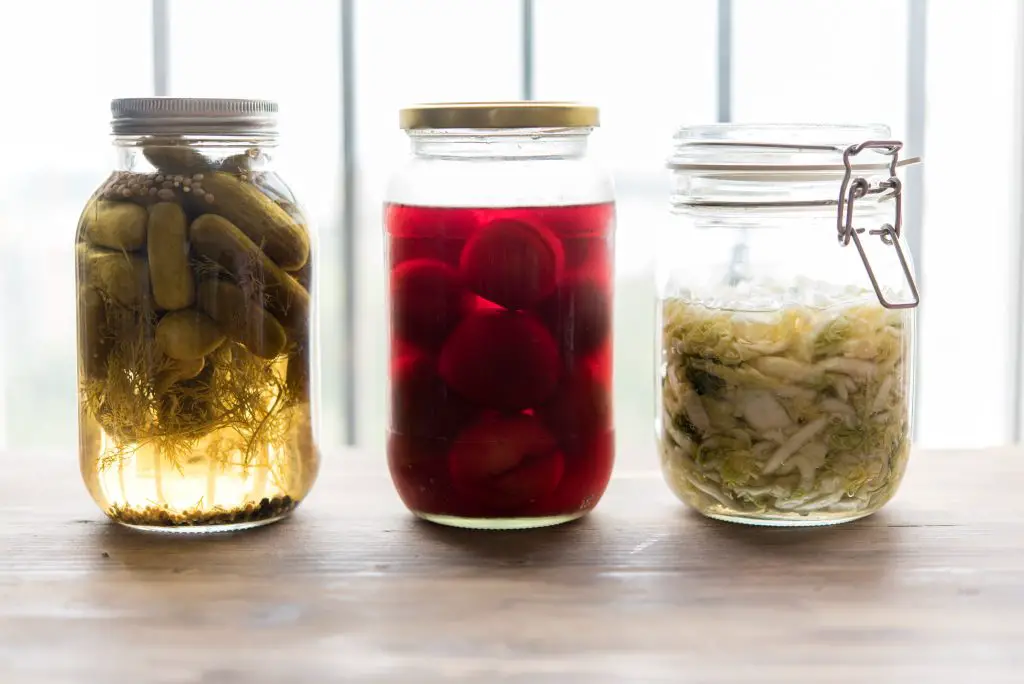Let’s discover some of the exciting new research about the link between gut health, mood, and stress. Let’s talk about our friendly resident gut microbes, probiotic foods, and supplements, and maybe offer gut-friendly simple recipes to keep you happy.
Disclaimer: The information is by no means a medical advice. It is entended to give you a new perspective and chance to discuss new things with your health practioners.
Gut Microbes
There are trillions of microbes that happily live in our gut. These friendly microbes do more than help us digest foods, make vitamins, and protect us from the not-so-friendly microbes – they have mood-boosting and stress-busting functions too!
Researchers are finding out more about their awesome health and mood/stress benefits every day. And, while the research is just starting to figure out the many gut microbe-brain connections, it’s such a new topic that’s worth sharing.
Gut Microbes And Probiotics
Gut Microbiota is the name of our gut microbes. The ones we can ingest are “Probiotics,” and the food we eat to feed these little helpers is “Prebiotics.”
“Probiotics” are live organisms that you can eat, drink, or take as a supplement. They turn milk into yogurt, and cabbage into sauerkraut, and they are great for both gut health and mental health.
Special probiotics that have mental health benefits are “psychobiotics,” (psycho = mental health, and biotics = live). They are live organisms that can benefit our psyche.

Probiotic-Rich Foods And Supplements
Probiotics can be found in fermented foods such as yogurt, sauerkraut (and other fermented veggies), miso, tempeh, and kimchi. You can drink them in kefir or kombucha. Since they are alive, it is important to choose unpasteurized ones that are in the fridge.
Please, check with your healthcare practitioner if you are pregnant or immunocompromised.
Of course, there are several probiotic supplements available too. Check with your healthcare provider to identify which one is best for you.
Generally speaking, practitioners recommend refrigerated supplements with at least 10 billion active cultures. However, it is also important to look into the number of strains they offer. There are tens of thousands of strain types, and each one of us needs certain ones but not all. Therefore, we need to play it safe and get as many strains as possible, then our body will make use of the ones it needs.
It is also a good practice to look for “third-party tested” brands. It means someone outside the company has tested it and says it’s a quality product.
Also, be sure to read the label before taking any supplements. The probiotics with the most research are of the Bifidobacterium and Lactobacillus types. However, there is still not enough information about psychobiotic effects to make specific mood-boosting recommendations.
Gut-Brain Connection
It may not seem obvious or intuitive, but our body is interconnected in many ways and more research is focusing on the “microbiota-gut-brain axis.” It’s the very complex connection between the gut, its microbes, and the brain. This new field has been called a “paradigm shift in neuroscience” (Dinan, 2017).
There are two main ways to simplify how the gut microbiome affects the brain:
- Through the “Vagus” nerves which connect the gut to the brain.
- Through the biochemical messengers that travel through the body to communicate with other organs, including the brain.
This new research may be more exciting than we think. While it may help us with mood and stress, one day it may be helpful for other conditions like autism and Parkinson’s.
Mood, Stress, And Your Microbes
Several studies show that stressed rodents, with increased stress hormones and stressed behaviors, also have different gut microbes!
These kinds of studies are limited on humans. Nonetheless, one study showed that moms with high levels of stress hormones during pregnancy had infants with more of the “bad” gut microbes.
But, can it work the other way around? Can changing our gut microbes affect our moods and stress responses?
Studies showed that rodents that grow up without any gut microbes at all (in a “bacteria-free” environment) respond to stress more than mice with normal gut microbes. Then, when they’re given either a probiotic or gut microbes from non-stressed mice, their stress responses often go back to normal.
“Gut microbiota and probiotics alter behavior and brain neurochemistry.” (Ait-Belgnaoui, et. al., 2012)
When stressed rats consumed probiotics, they had lower levels of both stress hormones and an inflammatory molecule associated with depression (“LPS” – lipopolysaccharide). This proves the positive connection between gut health and good behavior/mood.
Human studies show that after a few weeks of taking probiotic foods or supplements, healthy people have reduced stress hormones, feelings of stress, negative thoughts, and sad moods.
One fascinating study showed that when people took probiotics, brain MRI (magnetic resonance imaging) tests showed reduced brain activity for negative and aggressive thoughts!
After all this talk, do we really need to consume probiotics or is it better to nurture the microbes already existing in our guts?

Don’t Probiotics Die In The Stomach?
There was a study by University College London back in 2014, that showed that most probiotics die when they reach the stomach. The hostile acidic environment seems to not suit them.
However, this takes us back to what we said earlier regarding the choice of probiotics. Remember, we mentioned to take as many strains as possible. That’s because some strains do survive the acidic environment of the stomach.
Soil-based probiotics for example do survive the journey through the stomach to the intestines. This kind of probiotics contains bacteria that naturally exist in the soil, taking us back to farming days.
Prebiotics
The key to having a good gut-bacteria population is to feed the ones that are already there or the ones we introduced by consuming probiotic-rich food.
Prebiotics are food for gut microbes and, when fermented in the gut, produce specific changes in bacterial composition or activity. They are the friendly gut microbes’ favorite delicacies so they’ll happily grow, and multiply.
Prebiotics are foods that contain fiber. Things like fruits, vegetables, nuts, and seeds. Even dark chocolate (preferably with at least 70% cocoa). Foods that are particularly high in prebiotics include jicama, asparagus, avocado, whole grains, and allium vegetables like onions, garlic, leeks, and shallots.
Giving animals prebiotics reduced stress hormones and anxiety-related behaviors. In people, studies show that taking psychobiotics along with prebiotics can improve both the microbes in our gut, as well as our mood.



